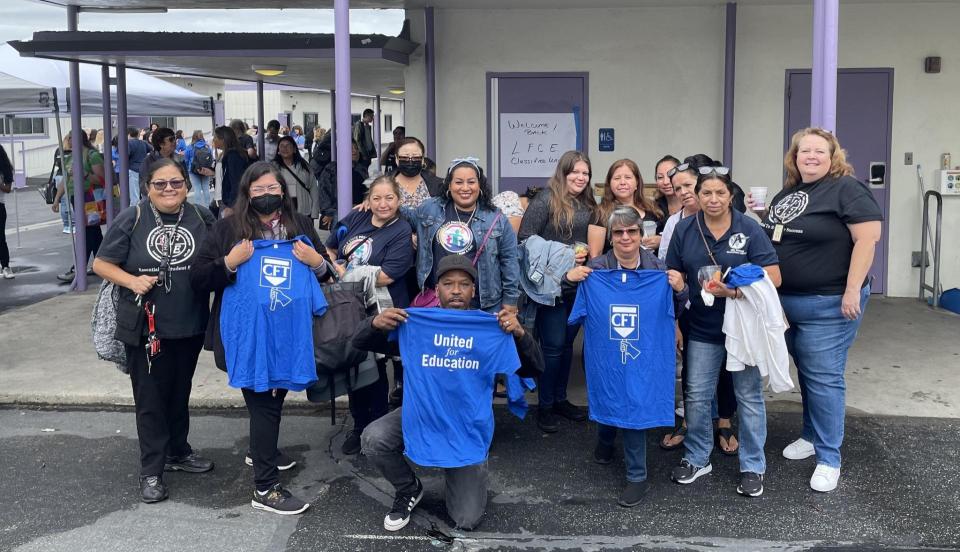Classified members take their fight to the Capitol
Teanna Tillery, the United Educators of San Francisco Vice President for Paraeduators, has been involved with the union in different capacities for about twenty years. She joined, she says because of the disparity in the way classified members were treated in negotiations.
“I worked in my community for years, and it’s just in my nature that if I see something I don’t understand I like to go to the source and try to understand it,” she said. “I just wanted to be part of the group who could address problems.”
For three years of her career, she went to the “dark side” she jokes, working in middle management. But she always felt like a unionist at heart.
“Once UESF, always UESF,” she said. “I even encouraged a group I supervised to file a grievance on me in regard to their job description because I knew that was the only way that it was going to get corrected.”
Because of her advocacy for workers, Tillery strongly supported AB 1699 (McCarty and Bonta), which would have offered the right of first refusal to currently employed classified employees for jobs “they can reasonably perform.” AB 1699 passed the Assembly but then was vetoed by Governor Gavin Newsom on September 13th.
Many of California’s classified school employees work part-time, often earning less than $30,00 per year in a state with a high cost of living. For those struggling financially, the chance to get more hours would make a big difference.
At UESF, Tillery says, classified employees often work two jobs. For example, working in the classroom in the morning and in the afternoon, being an early education teacher or a bus para so members have a more reasonable number of hours. But that’s not the case in all districts, and she wants all classified staff to have that opportunity.
Carl Williams, President of CFT’s Council of Classified Employees, also says passing this bill would have improve classified employee’s lives. He remembers a school clerk in his district who worked four hours a day for 15 years.
“When an eight-hour clerk position popped up, she would apply for it, but she was always passed over and somebody from the outside was hired,” Williams said. “It seems like a no-brainer that instead of going on the street, and trying to find someone to fill positions, why not use the folks who are currently there who have already been cleared? They have proven they can do the job, and they already have relationships with the students and staff, which is crucial.”
Williams is also President of the Lawndale Federation of Classified Employees, and he says when his local negotiated the right of first refusal in their contract, this clerk was the first one to benefit.
Now, like Tillery, he’d like to see it throughout the state, especially with the current shortages, so there wouldn’t be such a waiting period to fill an open position.
Another important bill to classified workers, AB 938 (Muratsuchi), would increase salary funding for teachers and school staff by 50% by 2030, as a way to create a more livable wage so schools wouldn’t struggle to fill positions.
“Students are suffering from education and workforce shortages partly because people cannot afford to work in education anymore, especially classified folks,” he said. “We have people who have worked their whole career part-time. We have this connection with students and we’re some of the longest lasting employees in school districts. And we’re in a bad situation when we have food service workers who serve meals every day, who have food insecurities. Something’s wrong with that.”
Tillery agrees, saying they have had 200 vacancies or more in her district over the last couple of years, affecting everyone’s morale.
“It impacts everybody — the families, the students, the school community,” she said. “We have to to find more creative ways to keep the folks we have and to recruit folks as well.”
AB 938 passed the California Assembly with a 77-0 bipartisan vote. It is now set to be considered by the California Senate next year.
The Classified Division will be hosting a rally May 21, 2024 to support efforts to raise wages and create better work environments.
Written by: Emily Wilson

